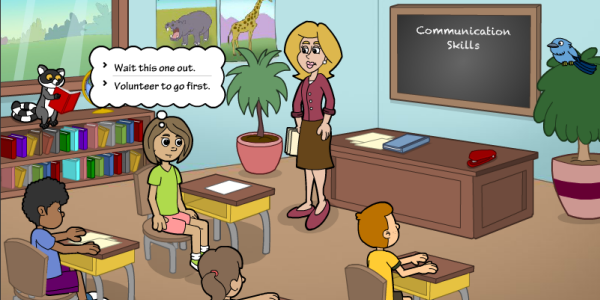
While Zoo U was originally created for the classroom, even in its early beta version, innovative after school program leaders gravitated to the game and used it with great success. And this usage has only increased. We continue to learn that Zoo U supports after school environments in a number of unique ways.
It shouldn’t be a surprise: almost all after school programs seek to develop social, emotional and character building skills in concert with the specific activities they teach, be they athletic, intellectual, creative, service-oriented or a combination thereof.
This focus is often reflected in their missions. For instance, The Boys and Girls Club of America aims “to enable all young people, especially those who need us most, to reach their full potential as productive, caring, responsible citizens.” And LA’s BEST, LAUSD’s premiere after school program, seeks “to provide a safe and supervised after school education” where activities are “not seen as ends in themselves, but as vehicles for creating values, building skills and solidifying peer and adult relationships.”
Almost across the board, SEL is deeply woven into the fabric of after school programming goals and practices. So providing kids – kids who are likely “tapped out” on academic lessons or structured, didactic teaching environments – with the opportunity to practice and build these skills with an engaging game is a big “win” for after school providers. Simply put, kids want to play.
That’s what several LA Area Boys and Girls Club of America sites found. Raquel Perez, a site coordinator of the BGCA Pico site shared this feedback at the outset of her Zoo U implementation in her summer session,
“I was so surprised how engaged the kids were with Zoo U! I got them started during our enrichment hour in the morning and they loved the program. It was hard for me to transition them into our next program because they didn’t want to (stop playing) Zoo U!”
In this case, Zoo U was an activity used in enrichment hour. We also find it being used in time set aside for computer or digital learning and in “free play” time.

From the perspective of the provider, Zoo U also serves as a unique support tool: it helps providers identify and meet the specific needs of their kids. In after school environments, as opposed to classrooms, there are rarely counselors to work with kids with skill deficits, really honing in on their areas of need. Zoo U does this automatically, by identifying the social emotional learning skills each child is most deficient in, and then supporting and challenging the child exactly where they need it – all through a fun game. Additionally, the formative assessments providers receive for each child guide them to targeted in-person lessons and activities from the game’s resource center to further help kids where they need it most.
And although after school programs don’t often have the focus or mandate for data that schools do, they are increasingly looking to measure efficacy. Here Zoo U again meets an after school need in a unique way. WINGS for Kids is a stellar example of an after school program that can prove to school partners and parents that their program works. They use Zoo U as an easy, valid way to measure both student growth and the efficacy of programming.
WINGS Chief Strategy Officer Julia Rugg tells us,
“Integrating Zoo U into our tool of assessments has provided us with even richer insight into individual student performance. We love the ability to receive real time data coming directly from our young students through stealth capabilities, and the kids really enjoy playing the game! (Zoo U) is an excellent way of gathering knowledge about SEL skill development that eliminates the challenges of other tools that are observational only.”
After school programs have always implicitly built SEL skills, but more and more are beginning to explicitly teach and measure these life skills. The National After School Association is now in its second year “deliberately moving forward in this area”, convening its members to share the latest research and best practices. Assessment is indeed a “hot topic” in these convenings as providers across the country voice a need for valid easy-to-implement tools. Zoo U is a strong solution. It’s an easy, fun way for kids to learn SEL, and an equally easy way for providers to have access to actionable data to support that learning and measure efficacy.